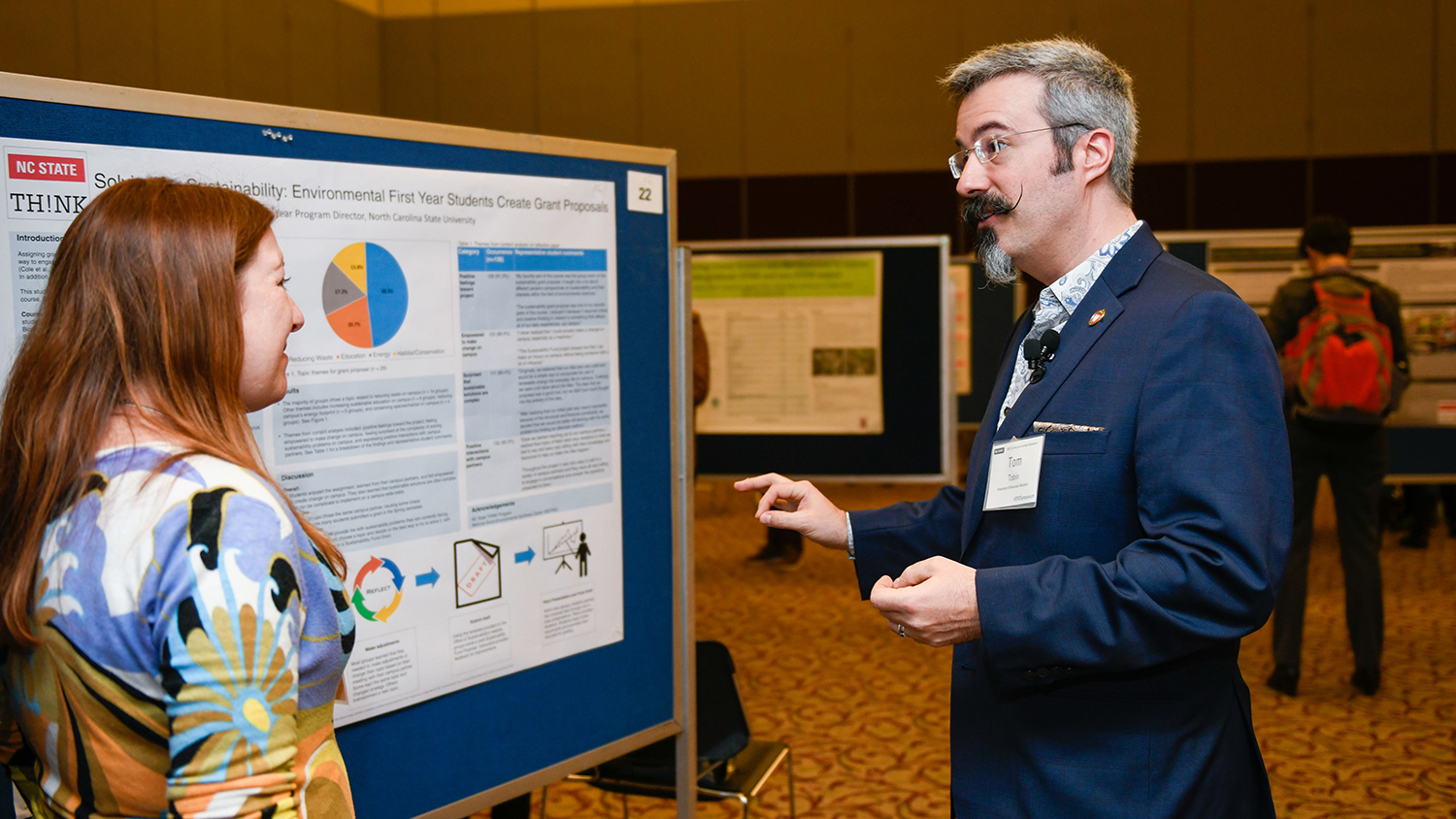Emphasizing Accessibility

Engaging in the highest level of teaching while ensuring accessibility for all remains a hallmark of NC State’s educational efforts. This was demonstrated by faculty and staff who recently gathered for the 2020 Teaching and Learning Symposium, sponsored by the Office of Faculty Development.
“This year’s focus on inclusive teaching and universal course design (UDL) proved especially relevant given our recent shift to online instruction at NC State,” said Diane Chapman, director of the Office of Faculty Development. “Faculty were introduced to concepts and technologies that reduce barriers to learning and increase accessibility for all students.”
Dr. Thomas J. Tobin, program area director of distance teaching and learning at the University of Wisconsin-Madison, gave the keynote lecture, “Reach Everyone and Teach Everyone with Universal Design for Learning.”
“The foundation of universal design for learning is +1 thinking,” said Tobin. “If there’s a way for interaction to happen now, there has to be at least one more way to do so. This makes learning more inclusive for everyone”
Tobin presented the audience with strategies for Universal Design for Learning, as outlined by Sam Johnston, director of postsecondary workforce and development for CAST, a nonprofit education research and development organization. They include:
- Start with text – if you start with text, then you automatically have a “+1” if you choose to add an audio component.
- Create alternatives for delivery – this includes putting captions on videos, making audio podcasts accessible with transcripts, etc.
- Let them do it their way – give people options on how they do their work.
- Go step by step – give students information for 10 minutes, then have them do something for 10 minutes. The act of taking a break that helps move information from presentation to memory/engagement
- Set content free – Post content anywhere where students can get it when they are not in the classroom environment. If special software is used in teaching, examples shouldn’t be posted in those specialized formats.
Thirty-five teams of students, faculty and staff presented their research at the symposium’s poster session. Topics ranged from increasing student engagement in undergraduate courses and creative thinking to flipped courses, peer assessments and more.
The Outstanding Poster Award was given to Mary Michaels Estrada, a lecturer in the Department of Languages and Literatures in the College of Humanities and Social Sciences. Her poster was “Teaching the ‘Skill of Well-Being’ in Freshman Composition for Internationals.”
“Last year, I had a student tell me, “this is the only time I talk all day.” I knew my international students longed for more connection in our classroom and on campus,” said Estrada. “I learned about research from a 2017 Aspen Institute report that shows that social and emotional learning (SEL) improves learning outcomes and I wanted to extend these benefits to my students. I decided to implement SEL skills-based activities in my freshman composition course for internationals.”
Her study supports the well-established concept that cognitive, social and emotional learning are inextricably linked. Students feel more connected in the classroom and on campus because of activities related to these concepts. A lasting and powerful outcome of any course is a feeling of inclusion and that can translate into the confidence to “Think and Do the Extraordinary.”
Estrada urges other faculty to consider how they can teach the “skill of well-being” in their courses, as it will improve learning outcomes and make the course more enjoyable to teach.
Symposium attendees could choose from the following breakout sessions or roundtable discussions: Shrinking a Large STEM Class: Providing Small Class Benefits in a Large Class; Won’t You Be My Neighbor?: A Case Study of Social-Emotional Learning in Freshman Composition for International Students; Does the Inclusion of Short Mindfulness Practices in Class Help Students?; Applying Practical Inquiry Model (PIM) to Discussion Board Questions to Increase Student Engagement with Peers and Course Content; Tactile Teaching Tools to Increase Inclusivity in Science Learning; Integrating Citizen Science in University Courses; and We Did It! How to Get Your SOTL Work Published.
- Categories:


